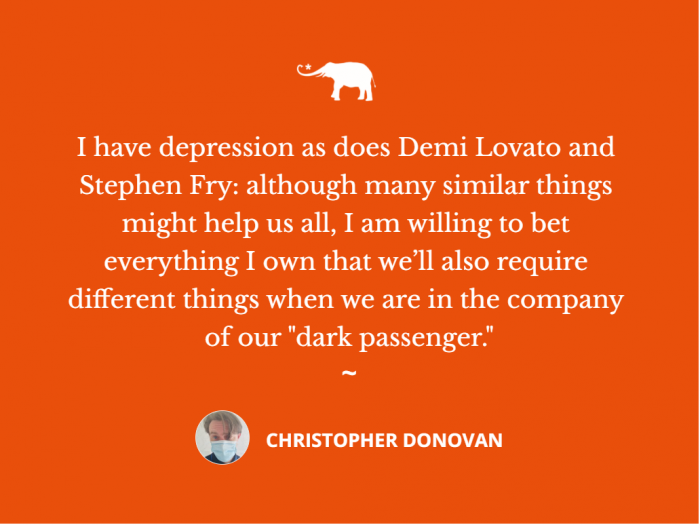View this post on Instagram
As a mental health support worker, I spend a huge amount of time with my nose buried in my client’s care plan.
This is a snapshot of that person and contains information that should — in theory — be used to tailor the actual support an individual receives.
It’s no substitute for spending time with the client and getting to know them as a person instead of just seeing them as a living, breathing collection of diagnoses. But a care plan is always a solid starting point, especially when starting work with a service user for the first time.
Although every client is legally obligated to have such a file, they can vary greatly from service user to service user. If one of the people we support has multiple diagnoses and has spent a considerable part of their life being professionally cared for, then their care plan could be hundreds of pages long. If a client has only recently been diagnosed with a single mental health condition, and only just entered care, then their care plan could be read in less than a minute.
There’s the added complication that, while some organisations take compiling a care plan seriously, others have a more relaxed attitude— I’ve studied many that were little more than a waste of a good tree.
However, there is one part that is never a waste: The Crisis Plan.
All of the service users I support will enter crisis at some point. In short, they will reach a point of extreme psychological struggle and engage in maladaptive behaviour, the most extreme being a compulsion to either hurt themselves or others. The crisis is inevitable, but not a slight on them or their capabilities, simply a result of the severe mental illnesses they battle every day.
And some days that battle will overwhelm them.
If this wasn’t inevitable, they wouldn’t need people like myself supporting them. It’s why I’m there, to provide sanctuary in those dark times.
And if it wasn’t inevitable they also wouldn’t need a crisis plan in the first place.
Specificity, not generalities
Whereas the care plan can sometimes be generic and vague, a crisis plan never is.
It outlines the very specific steps you need to take to keep that particular client safe when they are in crisis. It’s a “worst-case scenario” handbook. And it needs to be specific. Every service user has different triggers, and when they’re broken, hurting, and at the very bottom of their deep metaphorical well, something as tiny as uttering one wrong word could have profound consequences.
I don’t believe that anything represents how there are no one-size-fits-all solutions in mental health better than the concept of crisis plans.
Many are relatively straightforward, and the steps they suggest you take appear both logical and supported by robust psychological theory. There’ll be the telephone number of their community psychiatric nurse (CPN), guidelines for dispensing their prescribed when needed (PRN) medication, possible coping strategies — all fairly obvious.
However, some contain advice that seems utterly counterintuitive.
For example, a client I supported a long time ago did not respond well to kindness when in crisis. Instead, the plan advocated being firm with them. On the one hand, it went against every fibre of your being to be strong with them when they were low — all you wanted to do was cuddle them, make them a cup of tea, and encourage them to talk.
But this simply didn’t work for this client — it antagonised them and made them feel worse. So you were brisk and businesslike, offering practical solutions instead of compassion. At times like this, they didn’t want empathy — they wanted something more practical; that was the ladder that helped them climb out of the hole they were stuck at the bottom of.
The compassion came later, once the storm had passed. But, whilst you were both in that storm? You were more an objective life coach than a sympathetic friend.
Counterintuitive? Yes.
Uncomfortable? Yes.
But effective? Yes.
Although this approach wouldn’t work for the majority of people I’ve supported, it did for this person. Working with them was an eye-opening experience: it taught me that mental health is nothing if not unpredictable, and what might work brilliantly for one person could be hideously detrimental to someone else.
And that’s why I believe that everyone who suffers from a mental illness should at least consider creating their own specific crisis plan.
“What Works for Me…”
If you have people who love you, they will go away and research your condition.
They will scour the internet looking for both a general understanding of your illness and how they can help you. The only problem is that what they will read will be someone else’s words. They won’t be yours. As a result, despite any information being well-meaning, it might not be suitable for you.
I have depression as does Demi Lovato and Stephen Fry: although many similar things might help us all, I am willing to bet everything I own that we’ll also require different things when we are in the company of our “dark passenger.”
Just as they are for everyone else, my depressive triggers are unique. In fact, to a non-depressive, I fully accept that they might appear downright strange.
For example, bizarrely, “good” times can start a spiral of self-loathing that leaves me glued to my sofa for days. “Bad” times now motivate me—they never used to; adversity used to smother me in a blanket of blackness. But nowadays, if I have a problem, or am facing difficulty, I tend to get my backside in gear and do something about it.
But “happy” occasions? Boy—they can knock me sideways. If I am feeling safe, or joyful, or loved, then my internal guard lowers. Relaxation often lets my emotional drawbridge down and depression scurries across and starts running amok in the castle in my mind.
At such times my brain likes to remind me that I’ve spent most of my life not feeling safe, or joyful, or safe. “Why couldn’t I have found all this before?”
I’ll start asking, “How many years did I waste not feeling these things?”
Before long I’ve begun telling myself, “What an idiot! Why did you waste so many years NOT being safe, or joyful, or loved? How stupid are you?”
If that seems weird to you, then all I’d simply like to say is welcome to the world of depression, where things rarely make sense.
But, because my triggers are unique, so is the depressive episode that follows. Just are the things that might soothe me during those times.
So my partner and I created a crisis plan for me.
The Notebook
In fact, we made an occasion of making it.
I made her favourite meal, bought her favourite wine, along with a new notebook. I pampered her all night because, in return, she had some work to do—this was “Christopher’s Depression: 101” and it’s not an easy class. She had already educated herself on depression as a whole, but this night was about exploring my particularly strange version.
For instance, we talked about those “good” times and how, despite outwardly being happy, inside I might have begun to sink low. She asked what I needed at such moments; I replied, a simple hug or hand-hold would be enough. If we weren’t physically together, then just checking in was likewise magical. A text would be more than adequate.
I don’t need much to ward off depression at that time, just to know that someone is aware I’ve begun to struggle. That’s it. If that seems obvious to you, then you probably haven’t experienced the reaction of loved ones when someone they know is struggling with their mental health. It’s terrifying to see mental illness in full swing, and most people tend to go big or go home: you very often either get smothered in affection or face total abandonment.
I don’t need to be pampered, I don’t need a fancy gift, and I certainly don’t need to be abandoned. Just hold my hand or sent me a text.
Just let me know I’m not alone.
That works. Depression thrives with sadistic glee if you’re isolated, but it’s also essentially a bully: it tends to run away when faced with strength in numbers. An alliance? Jeez — it hates that.
She said she had no problem with any of that.
We talked about money, sex, medication, alcohol, my romantic past, my family, and my job, all the time searching for triggers, and a way to negate them.
I gave her the telephone of my local mental health support crisis team, along with the names of the people I’ve been working with, as well as how to contact my doctor. I told her the names of friends she could contact if she needed to enlist more help. I also told her the people I did not want her to contact.
She filled that notebook.
It was a lot for her to take in, and she was unquestionably occupied for the following few days. But, as time progressed, she told me she felt more relaxed about my depression—we’d talked about something terrifying and, by doing so, demystified it. She admitted that a lot of what we discussed was unexpected— just as it is for many other people, the things that might help me were counterintuitive, and not ones she would have automatically considered doing. But now she knew.
We now had a plan. Literally.
For me, it was the first time I’d ever talked about such things so openly. No one had ever taken an interest before. As a result, they appeared less scary to me as well. Failing to prepare is preparing to fail. We are never going to always deal with any situation perfectly (it’s mental health: unpredictable and vicious, no one ever gets an A+, there are too many variables) but that plan gave me confidence too: we were prepared.
The really funny thing is that neither of us has looked at the notebook since. It’s there, on the bookcase, waiting. Just as the crisis plans of my clients sit on a shelf in an office, dormant but ready to be used if needed.
But the mere act of writing it opened up a dialogue—as a catalyst for a more meaningful conversation about mental health, I’d heartily recommend doing what we did. It got us talking. And what’s more important than talking?
The Future
I am doing so much better nowadays. One “low” episode in a year is an achievement I’m incredibly proud of. But I’m also not complacent—if I relax too much, I’m only leaving the door open for my depression to return. I need to remain vigilant. Proactive.
The crisis plan was an important part of that process. Just as knowing it’s there ready to offer guidance on those rare occasions when my clients struggle, knowing ours is there too has provided comfort. Strength.
I hope we’ll never need it. But if we do? We’ll be ready. Boy, are we ready.
~


 Share on bsky
Share on bsky





Read 0 comments and reply